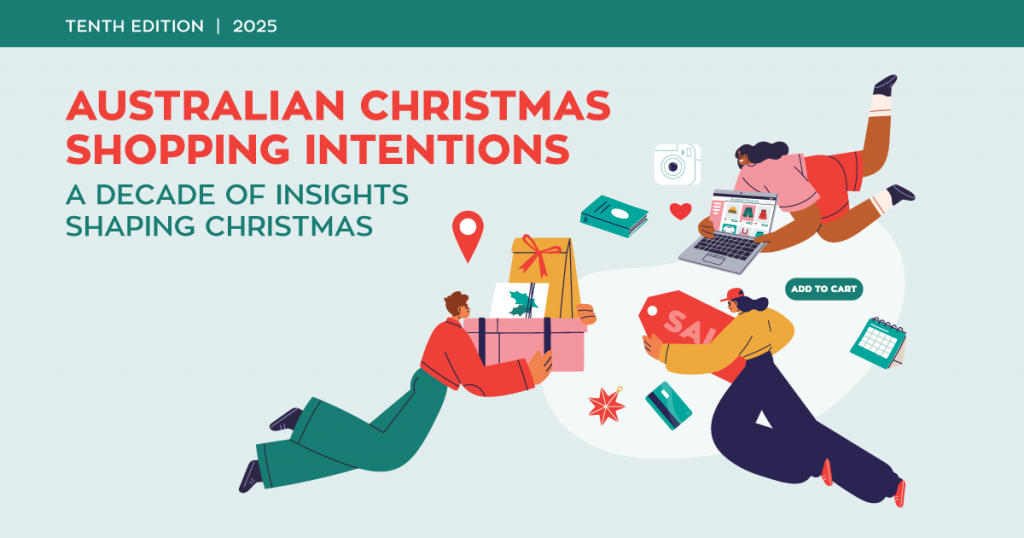Media Release – 24 September 2025: Australians are rewriting Christmas shopping traditions, with Black Friday dominating Boxing Day as one of the country’s biggest shopping moments. This is a key finding of the 10th annual Christmas Shopping Intentions Report from CPM Australia, conducted in partnership with Swinburne University’s CXI Research Group.
2025 marks a decade of research into Australians’ Christmas gift shopping. Since 2016, the survey has tracked the rise of sales events, the spread of omnichannel behaviours and the evolution of gift choices, creating a unique evidence base on the season that matters most in retail.
November endures as the peak month for Christmas shopping, with 57 percent planning to complete most of their gift buying in November, driven mainly by Cyber Weekend. From a niche event in 2016, Black Friday now captures 55 percent of shoppers, and 62 percent expect to buy gifts during sales events. Offering earlier access to holiday deals and outperforming Boxing Day on perceived value, Black Friday has reshaped the retail calendar.
Value remains the dominant factor. Seventy-one percent cite discounts and promotions as their top priority when buying Christmas gifts. Average spend has edged up to $667, with 79 percent planning to spend the same or more than last year.
Christmas gift lists have evolved. Clothing and shoes (46 percent), books (44 percent) and experiences (42 percent) now lead, with gift cards slipping out of the top three for the first time in a decade. Experiences are especially popular among 18–34s, with 55 percent planning leisure or entertainment gifts.
“After ten years of research, it is clear Christmas in Australia now starts in November,” said Nabs Awad, Managing Director of Retail Safari. “Cyber Weekend now dominates gift timelines. Australians want value earlier, and retailers who wait risk missing peak demand. Timing, value and seamless omnichannel experiences, from discovery to delivery, are now critical.”
The shift in shopping channels is one of the most transformative stories of the decade. Omnichannel shopping is entrenched in Christmas, with 89 percent of shoppers planning to buy both in-store and online. Online marketplaces such as Amazon and eBay remain popular, while department stores draw strong Christmas traffic. Shoppers primarily go in-store to see and touch products (41 percent), while comfort at home drives online shopping (18 percent).
Cards dominate payments, led by debit (61 percent). New behaviours are emerging but remain niche. Fifty-eight percent of Australians say they will not use AI for Christmas shopping in 2025, though among those experimenting, ChatGPT is the favourite.
“The 2025 Christmas shopping season will be defined by value-driven choices, omnichannel expectations, earlier purchasing and the growing pull of sales events. Retailers that move early and act decisively will win the Christmas gift shopper,” said Mr Awad.
About the Survey:
The 2025 research was conducted through an online survey of 506 Australian consumers aged 18+ planning to purchase Christmas gifts from 31 July to 5 August 2025. Sampling quotas were applied to ensure the survey sample reflected ABS population data across age, gender, and state.
For further information, please contact:
Mariluz Restrepo
E: mariluz.restrepo@cpm-aus.com.au




